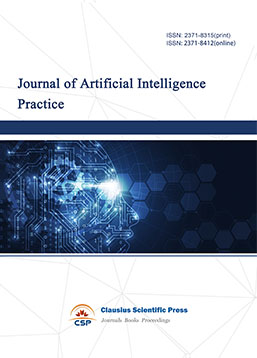Application of RAG Model Based on Retrieval Enhanced Generation Technique in Complex Query Processing
DOI: 10.23977/acss.2024.080608 | Downloads: 75 | Views: 1971
Author(s)
Xiangcan Li 1
Affiliation(s)
1 Bytedance Inc, San Jose, 95131, USA
Corresponding Author
Xiangcan LiABSTRACT
In the field of complex query processing, traditional natural language processing models are often difficult to effectively deal with the diversity and complexity of query contents. The Retrieval Augmented Generation (RAG) model demonstrates unique advantages in processing complex queries by combining the two processes of retrieval and generation. This paper provides an in-depth discussion on the working principle of the RAG model and applies it to complex query processing scenarios. By analyzing real cases and validating experimental results, we demonstrate the significant advantages of the RAG model in enhancing query processing results. Although the RAG model shows good performance in processing complex queries, its application still faces some challenges and limitations. This paper concludes with an outlook on the future development of the RAG model, exploring possible optimization directions and application prospects.
KEYWORDS
RAG model, retrieval enhancement generation, complex query processing, natural language processing, deep learningCITE THIS PAPER
Xiangcan Li, Application of RAG Model Based on Retrieval Enhanced Generation Technique in Complex Query Processing. Advances in Computer, Signals and Systems (2024) Vol. 8: 47-53. DOI: http://dx.doi.org/10.23977/acss.2024.080608.
REFERENCES
[1] Cambazoglu B B, Aykanat C. Performance of query processing implementations in ranking-based text retrieval systems using inverted indices [J]. Information Processing & Management, 2006, 42(4):875-898. DOI: 10. 1016/j. ipm. 2005. 06. 004.
[2] Tamine L, Chrisment C, Boughanem M. Multiple query evaluation based on an enhanced genetic algorithm [J]. Information Processing & Management, 2003, 39(2):215-231. DOI:10. 1016/S0306-4573 (02)00048-1.
[3] Doller M, Tous R, Gruhne M, et al. The MPEG Query Format: Unifying Access to Multimedia Retrieval Systems [J]. IEEE Multimedia, 2008, 15(4):82-95. DOI:10. 1109/MMUL. 2008. 96.
[4] Gao Y, Zheng B, Chen G, et al. Continuous visible nearest neighbor query processing in spatial databases[J]. The VLDB Journal, 2011, 20(3):p. 371-396. DOI:10. 1007/s00778-010-0200-z.
[5] Candan K S, Li W S, Priya M L. Similarity-based ranking and query processing in multimedia databases[J]. Data & Knowledge Engineering, 2000, 35(3):259-298. DOI:10. 1016/S0169-023X (00)00025-2.
[6] Aldous K J. A system for the automatic retrieval of information from a specialist database [J]. Information Processing & Management, 1996, 32(2):139-154. DOI:10. 1016/s0306-4573 (96)85002-3.
[7] Wu J K, Narasimhalu A D. Fuzzy content-based retrieval in image databases [J]. Information Processing & Management, 1998, 34(5):513-534. DOI:10. 1016/S0306-4573(98)00017-X.
[8] Komai Y, Sasaki Y, Hara T, et al. A kNN Query Processing Method in Mobile Ad Hoc Networks[J]. IEEE Transactions on Mobile Computing, 2011, 1(13):287-288. DOI: 10. 1109/MDM. 2011. 39.
[9] Fuhr, Norbert. A decision-theoretic approach to database selection in networked IR[J]. Acm Transactions on Information Systems, 1999, 17(3):229-249. DOI:10. 1145/314516. 314517.
[10] Mamouras K, Raghothaman M, Alur R, et al. Stream QRE: modular specification and efficient evaluation of quantitative queries over streaming data[J]. Acm Sigplan Notices, 2017, 52(6):693-708. DOI: 10. 1145/3140587. 3062369.
| Downloads: | 43093 |
|---|---|
| Visits: | 936291 |
Sponsors, Associates, and Links
-
Power Systems Computation

-
Internet of Things (IoT) and Engineering Applications

-
Computing, Performance and Communication Systems

-
Journal of Artificial Intelligence Practice

-
Journal of Network Computing and Applications

-
Journal of Web Systems and Applications

-
Journal of Electrotechnology, Electrical Engineering and Management

-
Journal of Wireless Sensors and Sensor Networks

-
Journal of Image Processing Theory and Applications

-
Mobile Computing and Networking

-
Vehicle Power and Propulsion

-
Frontiers in Computer Vision and Pattern Recognition

-
Knowledge Discovery and Data Mining Letters

-
Big Data Analysis and Cloud Computing

-
Electrical Insulation and Dielectrics

-
Crypto and Information Security

-
Journal of Neural Information Processing

-
Collaborative and Social Computing

-
International Journal of Network and Communication Technology

-
File and Storage Technologies

-
Frontiers in Genetic and Evolutionary Computation

-
Optical Network Design and Modeling

-
Journal of Virtual Reality and Artificial Intelligence

-
Natural Language Processing and Speech Recognition

-
Journal of High-Voltage

-
Programming Languages and Operating Systems

-
Visual Communications and Image Processing

-
Journal of Systems Analysis and Integration

-
Knowledge Representation and Automated Reasoning

-
Review of Information Display Techniques

-
Data and Knowledge Engineering

-
Journal of Database Systems

-
Journal of Cluster and Grid Computing

-
Cloud and Service-Oriented Computing

-
Journal of Networking, Architecture and Storage

-
Journal of Software Engineering and Metrics

-
Visualization Techniques

-
Journal of Parallel and Distributed Processing

-
Journal of Modeling, Analysis and Simulation

-
Journal of Privacy, Trust and Security

-
Journal of Cognitive Informatics and Cognitive Computing

-
Lecture Notes on Wireless Networks and Communications

-
International Journal of Computer and Communications Security

-
Journal of Multimedia Techniques

-
Automation and Machine Learning

-
Computational Linguistics Letters

-
Journal of Computer Architecture and Design

-
Journal of Ubiquitous and Future Networks


 Download as PDF
Download as PDF